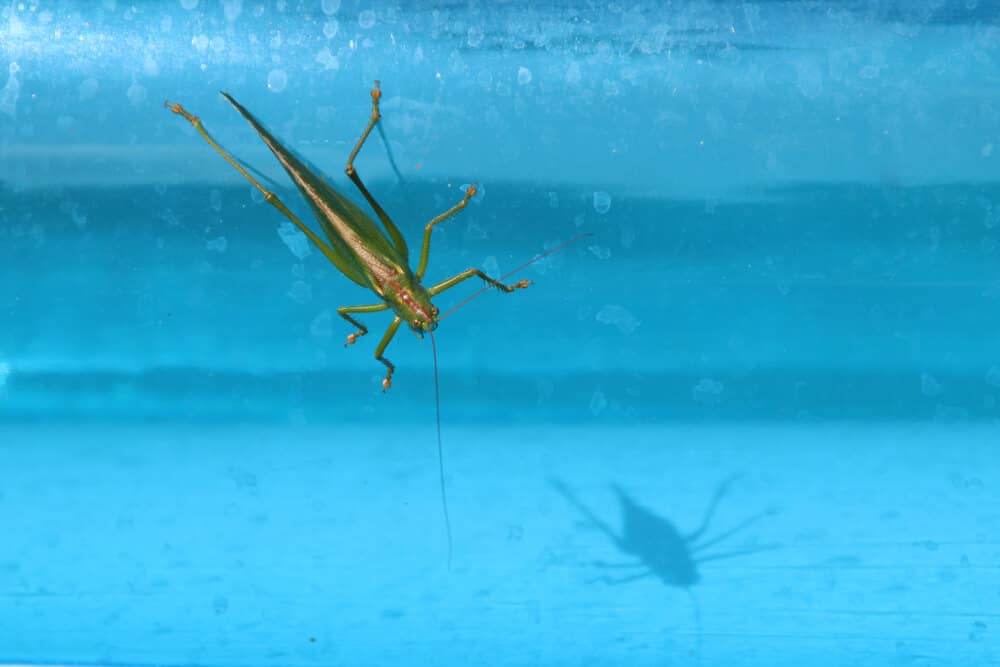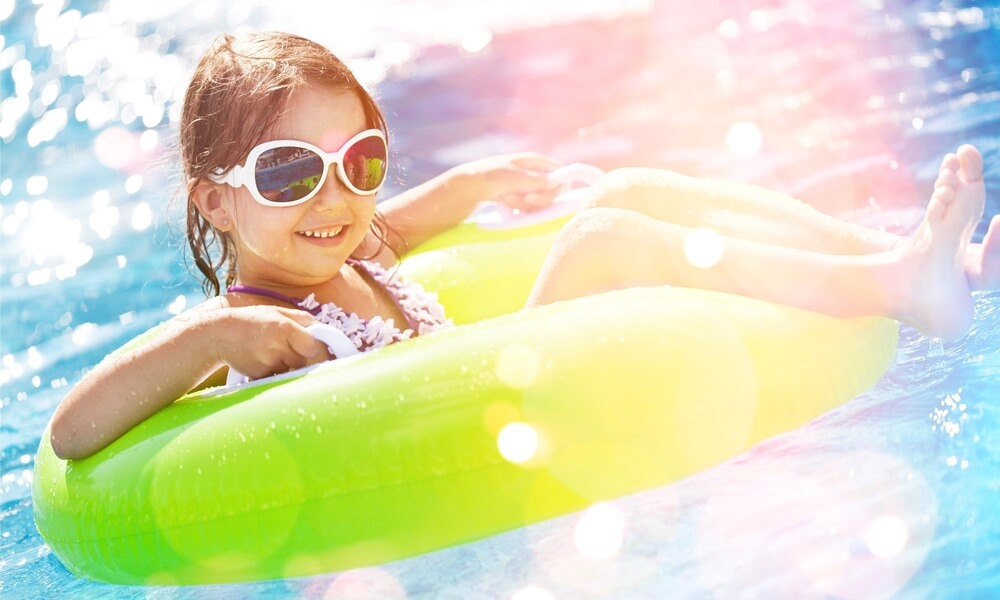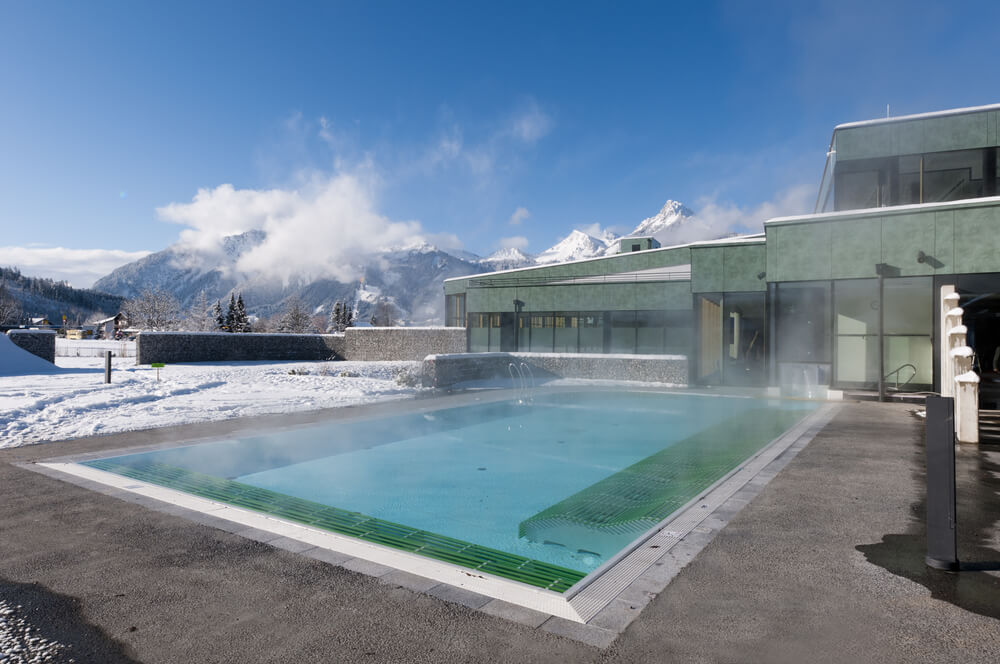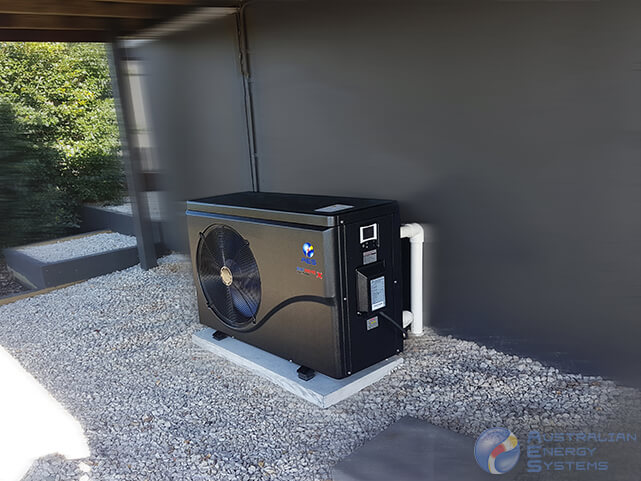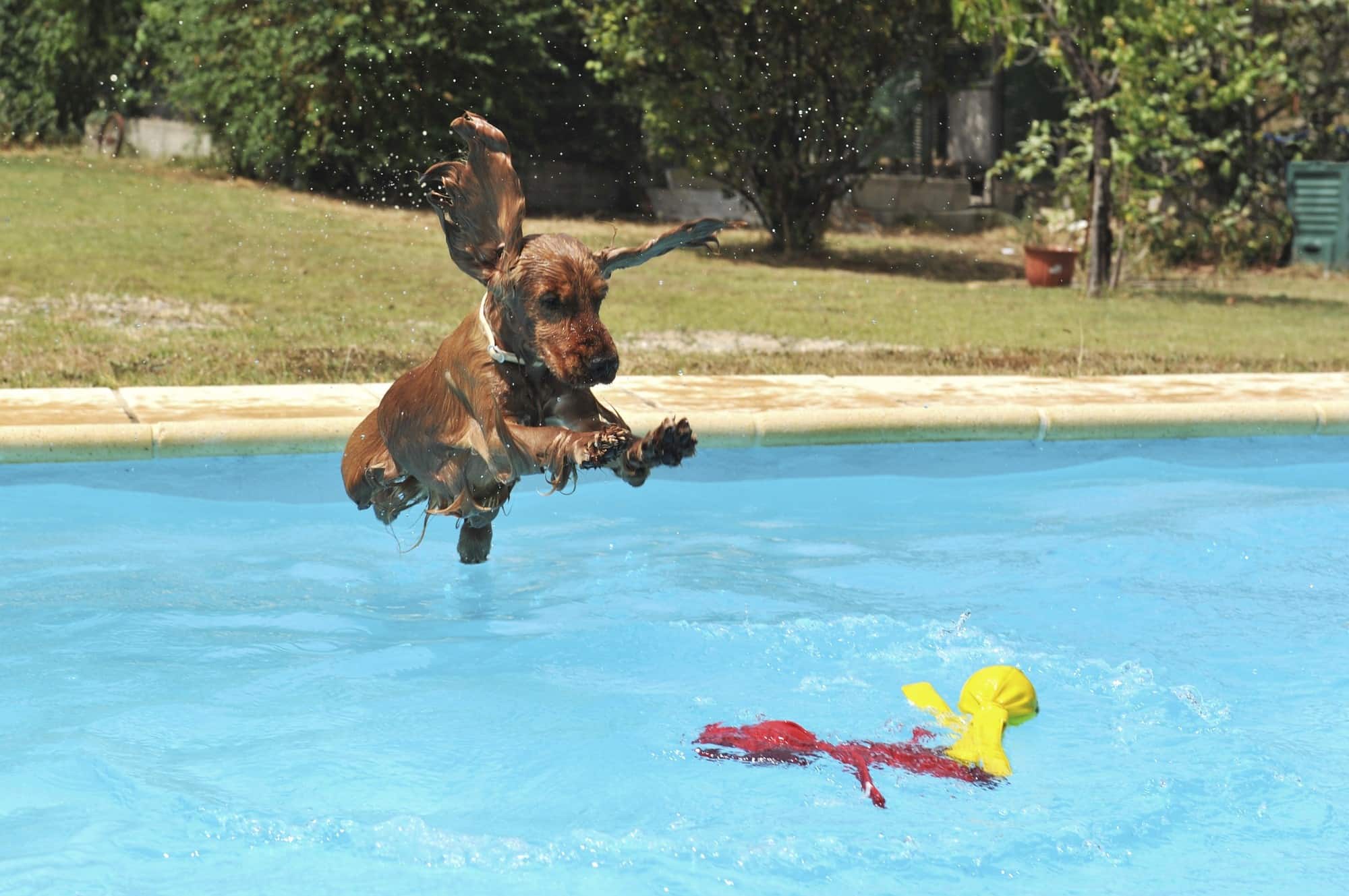Many find there are more creepy crawlies and flying insects around in summer, and that can create a problem for pool owners. Bees, wasps and other flying insects are attracted to your pool because they see it as a ready supply of water, but many falls in and struggle to escape before drowning. You’re likely to encounter them while you’re swimming, and many people are stung by angry bees and wasps in their pool each year. You’ll never be able to avoid them all, but you can reduce the number by following these tips and tricks.
Top highlight:
There are many ways to keep bees and bugs away from your pool without using harsh chemicals or harming the environment:
- Provide alternative water sources like shallow bowls or birdbaths away from the pool to divert bees looking to hydrate.
- Plant natural repellents near the pool—herbs like mint, thyme, and lemongrass help deter bees and wasps without harsh chemicals.
- Keep the poolside clean: Cover all food and drinks, clean up crumbs and spills immediately, and empty rubbish bins frequently to avoid attracting pests.
- Use neutral colours and essential oils: Bees love bright hues and floral scents—opt for neutral pool decor and diffuse oils like peppermint or citronella around the area.
- Install a pool cover to physically block access to the water when not in use—this also helps reduce debris and maintenance.
Why Are Bees Attracted to Your Pool?
Bees are primarily drawn to water sources—especially in hot, dry climates like much of Australia. Your swimming pool becomes an ideal hydration point for bees because it’s exposed, reflective, and easily accessible. The chlorine doesn’t deter them; in fact, some bees tolerate it in exchange for moisture.
Other insects, including wasps, mosquitoes, and midges, are attracted by:
- Still water (especially in pool covers or filters)
- Brightly coloured pool floats and furniture
- Sweet-smelling sunscreens, drinks, and snacks
- Nearby flowering plants or trees
How to keep bees away from your pool?
An Alternative Water Source
Since the bees and bugs are, for the most part, just trying to get a drink, consider supplying an alternative water source if you have a problem with insects in your neighbourhood. Ponds, buckets and bowls of water can help to divert the bugs and bees from your pool, but be especially careful with children and pets around. You don’t want them playing or drinking in the bees’ water, so, if possible, put your alternative water source close to where the bees are so they’ll find it before they find your pool. You should also be aware that it could encourage mosquitos to breed in some regions, so it’s all about striking a balance.
Plant Repellents
There are many plants that repel bugs and bees, so if you have a garden around your pool, try planting some to make it less attractive to them. Plants like fennel, thyme, mint, and lemongrass look lovely and smell divine, unless you’re a bee or wasp or any other bug. Keep your brightly coloured, bee-attracting flowers away from the pool and grow some nice herbs close by instead.
Maintain a Clean Poolside Environment
One of the most practical yet often overlooked ways to keep bees and bugs away from your swimming pool is by maintaining a clean and clutter-free poolside area. Bees are naturally attracted to sweet smells and sugary residues commonly found in food and beverages. Even the smallest spill or leftover crumb can become a beacon for insects.
- Cover Food and Beverages: When hosting poolside barbecues, parties, or simply enjoying a snack by the water, make it a rule to keep all food and drink items covered when not in use. Open soda cans, juice boxes, and fruit platters are especially attractive to bees and wasps. Use lids, mesh food tents, or airtight containers to block scents from reaching nearby insects. This simple habit can significantly reduce unwanted attention from flying pests.
- Clean Up Promptly: After any meal, ensure the area is thoroughly cleaned. Wipe down tables, chairs, and lounge areas with a mild detergent to remove sticky residues. Dispose of food wrappers and empty drink containers right away, and never leave dirty dishes sitting out, especially overnight. A quick rinse with a garden hose can also help clear sugary spills on hard surfaces.
- Empty Rubbish Bins Frequently: Trash bins located near your pool should be sealed tightly and emptied often. Flies, ants, and bees can all detect food waste from a surprising distance. Choose bins with locking lids and place them away from the pool if possible. This minimizes the chances of creating a new pest hotspot just steps from your swimming zone.
- Avoid Scented Candles or Lotions: Many personal care products like sunscreen, body lotion, or candles contain fruity or floral fragrances that mimic nectar—bees’ favorite scent. Choose unscented or bee-repelling options when spending time outdoors to reduce the likelihood of attracting insects.
By integrating these habits into your poolside routine, you’ll not only make the area more enjoyable and hygienic but also create an environment that’s far less appealing to bees, wasps, and other pests.
Use Colors and Scents Wisely
Believe it or not, the colors and scents around your pool area can play a major role in attracting—or repelling—bees. These tiny creatures rely heavily on their sense of sight and smell to locate food sources, so strategic choices in your pool décor and ambient aromas can make a big difference in how many buzzing visitors you encounter.
Using a Pool Cover
A well-fitting appropriate pool cover is the best solution for keeping bugs and debris out of your pool when you’re not using it. You’ll also have the added benefit of less pool maintenance and a more even water temperature, especially if you’ve installed pool heating for year round swimming comfort.
Pool Heating Solutions
Australian Energy Systems is your pool heating expert with a range of swimming pool heaters and pool covers to suit every requirement and every pool. Give us a call on 1800 243 847, or contact us online for more information on our range of pool heating solutions, as well as our pool covers.

